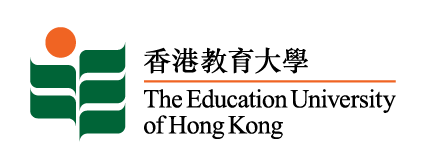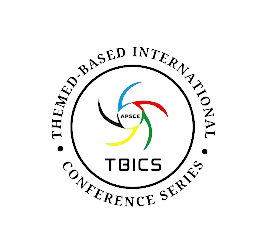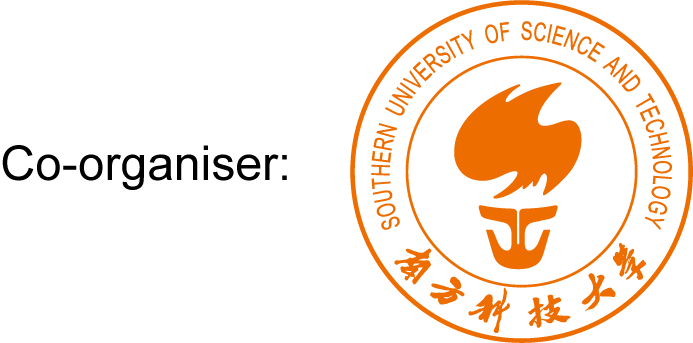Keynote Speakers
Speech Title
Transforming Learning and Education in the Era of AI
 Prof. BREAZEAL, Cynthia
Prof. BREAZEAL, Cynthia
Professor of Media Arts and Sciences
Massachusetts Institute of Technology, The United States
Speaker Bio
Cynthia Breazeal is a professor of media arts and sciences at MIT, where she founded and directs the Personal Robots group at the Media Lab. She is the MIT dean for digital learning, and in this role, she leverages her experience in emerging digital technologies and business, research, and strategic initiatives to lead Open Learning’s business and research & engagement units. She is also the Director of the MIT-wide Initiative on Responsible AI for Social Empowerment and Education (raise.mit.edu). MIT RAISE is a research and outreach effort that advances access and inclusivity in AI education to people of all ages and backgrounds with a focus on K12 and the workforce. She co-founded the consumer social robotics company, Jibo, Inc., where she served as Chief Scientist and Chief Experience Officer.
Breazeal is a pioneer of social robotics and human-robot interaction. Her work balances technical innovation in AI, UX design, and understanding the psychology of engagement to design personified AI technologies that promote human flourishing and personal growth. Her recent work focuses on the theme of "living with AI" and understanding the long-term impact of social robots that can build relationships and provide personalized support as helpful companions in daily life. Her research group actively investigates social robots applied to education, pediatrics, health and wellness, and aging. As part of this mission, her group also develops design justice frameworks for human-robot interaction and inclusive AI literacy education for under-served K12 students.
Speech Summary
Artificial intelligence is rapidly transforming the world, and it is essential for educators, researchers, and innovators to prepare students to thrive in an increasingly AI-powered workforce. The MIT RAISE Initiative is at the forefront of the growing K12 AI Literacy/Fluency movement. Our efforts advance research, innovation, and impact goals at the intersection of AI and learning for K12 students on a global scale. Building on MIT's tradition of constructionist pedagogy and groundbreaking science and innovation, MIT RAISE develops transformative educational technologies, innovative curriculum, teacher development materials, and innovative K12 outreach programs such as the Day of AI and MIT Future Makers. This includes exploring how AI-powered educational interventions can support student learning outcomes and prepare them to work creatively and responsibly with increasingly intelligent tools and technologies. Today, even young learners can now use these powerful AI and computing tools to become positive change makers at the personal, community, and national levels. Much of what we develop and share with the educational community is free and open source. This talk will introduce these resources, their impact, and how to access them. Our hope is K12 teachers can use these resources to build their own AI literacy skills, learn how to responsibly and effectively use AI in teaching practice, and bring AI literacy and AI fluency to their classroom. By doing so, we hope to contribute to a future where everyone can participate in, benefit from, and responsibly shape our future with artificial intelligence.
Presentation Slides
Download the keynote presentation here: (Prof. BREAZEAL, Cynthia) Transforming Learning and Education in the Era of AI
Speech Title
The effectiveness of AI-based support for engagement during video-based learning
 Prof. MITROVIC, Tanja
Prof. MITROVIC, Tanja
Professor of Department of Computer Science and Software Engineering
University of Canterbury, New Zealand
Speaker Bio
Dr Antonija (Tanja) Mitrovic is a full professor at the Department of Computer Science and Software Engineering, the University of Canterbury, Christchurch, New Zealand. She is the leader of ICTG (Intelligent Computer Tutoring Group). Dr Mitrovic received her PhD in Computer Science from the University of Nis, Yugoslavia, in 1994. She is an associate editor of the following journals: Practice in Technology Enhanced Learning (RPTEL), International Journal on Artificial Intelligence in Education (IJAIED) and Journal of Universal Computer Science (JUCS). She is a Fellow of the Asia-Pacific Society for Computers in Education (APSCE), Distinguished member of ACM, and senior member of AAAI and IEEE. She was awarded the Distinguished Researcher Award in 2011 by APSCE.
Dr Mitrovic’s primary research interests are in AI in education and student modeling. ICTG has developed a number of constraint-based intelligent tutoring systems in a variety of domains, which have been thoroughly evaluated in real classrooms, and proven to be highly effective. These systems provide adaptive support for acquiring both problem-solving skills and meta-cognitive skills. ICTG has also developed ASPIRE, a full authoring and deployment environment for constraint-based tutors. Her recent research focuses on AI-based support for active learning from videos.
Speech Summary
Video-based learning is very popular both in formal and informal educational settings. Videos do not only allow information transfer, but also offer opportunities to show how to perform tasks so that the learner can grasp them better. However, watching videos can be a passive activity and result in shallow learning. We have developed AVW-Space, a video watching platform, which allows the teacher to select publicly available videos from YouTube and define a space for their students. Learning happens in two phases in the platform. In the first phase, students watch videos and write comments on them. The teacher can specify aspects for students to use when writing comments, which focus students’ attention to important concepts in videos or to encourage students to self-reflect. In the second phase, the teacher can select some comments to open anonymously to the whole class, to review and rate. The teacher can specify rating categories to reinforce important activities, such as self-reflection. AVW-Space is a general-purpose and can be used to provide instruction in any domain. In our research, we focus on teaching soft skills, e.g. giving presentations or communications in software-development teams, as such skills are difficult to teach in the classroom and require the learner to reflect on their experience and observe the skills performed in various situations. In addition to writing/rating comments, AVW-Space uses AI-based support in order to track the learner’s behaviour and provide personalized nudges in order to improve engagement. In this talk, I will present the evolution of AVW-Space and various types of AI-based support we have added to it over the years. In early studies, when there was no support, half of the participants watched videos passively. To improve engagement via comment writing, extended the platform by adding a set of reminder nudges, which are given to students who are passively watching videos or not commenting on a variety of topics. Those nudges resulted in a significantly higher percentage of students writing comments. We then developed machine learning models which classify students’ comments immediately after they are written into low, medium or high-quality comments. Based on these classification, AVW-Space provides additional nudges to students based on the quality of comments they write. We also added visualizations of students’ activities, the comment quality and nudges, so that students can easily review their progress. The most recent studies show the effectiveness of the AI-based support: the vast majority of students are now active and writing high-quality comments, which also results in higher learning outcomes.
Presentation Slides
Download the keynote presentation here: (Prof. MITROVIC, Tanja) The effectiveness of AI-based support for engagement during video-based learning
Speech Title
AI-Empowered Open-Ended Learning Environments in STEM Domains Application to SPICE: Science Projects Integrating Computing & Engineering
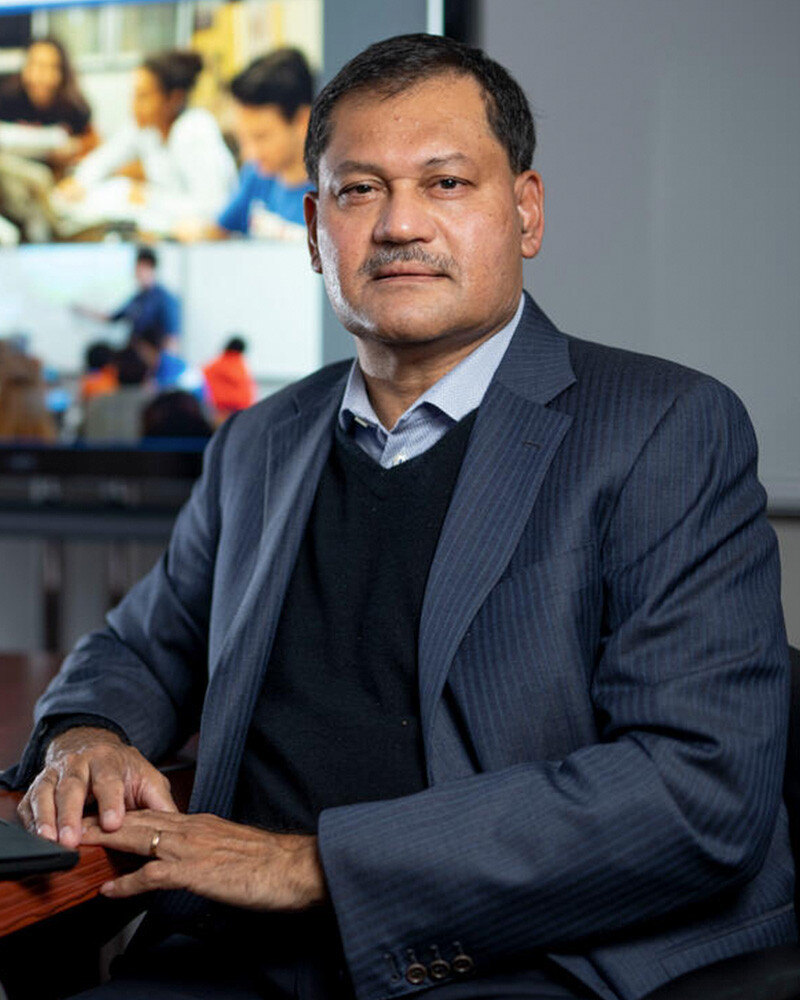 Prof. Gautam Biswas
Prof. Gautam Biswas
Cornelius Vanderbilt Professor of Engineering
Professor of Computer Science
Vanderbilt University, United States
Speaker Bio
Gautam Biswas is a Cornelius Vanderbilt Professor of Engineering and Professor of Computer Science and Engineering in the CS Department, as well as a Senior Research Scientist at the Institute for Software Integrated Systems at Vanderbilt University. He conducts research in intelligent systems with primary interests in modeling and simulation, analysis of complex embedded systems, data mining, and Open-Ended Learning Environments (OELEs) for STEM disciplines. His notable projects include Teachable Agents and learning environments that promote synergistic learning of Computational Thinking and STEM concepts and practices. He has also developed innovative data mining techniques for studying students' learning behaviors and linking them to metacognitive strategies. More recently, as part of an NSF AI Institute, ENGAGE AI, and an IES STEM Education Center, GENIUS, he has developed tools for multimodal data collection and analyses in classroom environments. He is now developing conversational chatbots to support student learning. Prof. Biswas is a Life Fellow of the IEEE, Asia Pacific Society for Computers in Education (APSCE), and the Prognostics and Health Management Society.
Speech Summary
Over the last twenty years, significant developments in AI, Machine Learning, and data collection technologies have emerged in computer-based learning environments. A new focus in AI in Education includes Open-Ended Learning Environments (OELEs) that allow learners to practice problem-solving in real-world contexts with tools that support engaged learning.
In this talk, I will present examples of OELEs that we have developed for STEM education. I will specifically discuss SPICE (Science Projects Integrating Computation and Engineering). Utilizing computational thinking (CT), this environment integrates science and engineering learning for middle school students. SPICE features a water runoff curriculum, in which students create models for various ground surfaces after rainfall. They then tackle an engineering design challenge by analyzing trade-offs between cost, absorption, and accessibility to find their “optimal” solutions.
I will address a key research question using data from classroom studies: How does a learning sequence that adopts multiple linked representations, combining conceptual and computational modeling with engineering design, enhance students' critical thinking in STEM and CT? Additionally, I will discuss the design and deployment of conversational agents for automated grading and feedback on formative assessments, as well as other AI tools designed to help teachers gain deeper insight into student classroom activities for tailored instruction.
Presentation Slides
Download the keynote presentation here: (Prof. GAUTAM, Biswas) AI-Empowered Open-Ended Learning Environments in STEM Domains Application to SPICE
Invited Speakers
Speech Title
Transforming Education in Cambodia: Advancing STEM through Education Technology
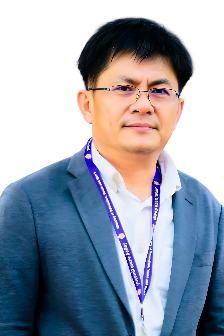 Mr. Sok Tha
Mr. Sok Tha
Director of the Digital Transformation Department, MoEYS Cambodia
Speaker Bio
Mr. Sok Tha is the Director of the Department of Digital Transformation at the Ministry of Education, Youth, and Sport, Cambodia. He has been at the forefront of the digital revolution in the education sector of Cambodia. Under his leadership, significant milestones have been achieved, including the successful deployment of ICT infrastructure in educational institutions, the implementation of information systems in the education sector, the development of ICT-based curricula and textbooks for general education, and the creation of digital educational content to enhance teaching and learning experiences. Moreover, efforts have been made to support schools in obtaining necessary ICT facilities and infrastructure, empower educators with digital competencies, and introduce innovative technological tools like e-learning and distance education, all of which have been crucial in driving pedagogical improvement and enhancing administrative efficiency. His collaborative strategy underscores the significance of engaging with government entities, development partners, the private sector, international and local organizations, and other stakeholders, highlighting the critical need to integrate technology seamlessly throughout all educational tiers and to effectively navigate the dynamic landscape of digital education within the sector. His commitment to empowering youth through technology-driven education shows his visionary leadership in driving the digital transformation sector, making him a key figure in advancing education in the country.
Speech Summary
Cambodia is navigating a transformative journey towards becoming a resilient and knowledge-based society, guided by the Pentagonal Strategy Phase I. Central to this evolution is the overhaul of the education system to embrace digital tools and STEM disciplines, preparing students with essential 21st-century skills. The Ministry of Education, Youth, and Sport's comprehensive reforms prioritize elevating education quality, science, and technology for a robust educational landscape. Strategic initiatives encompass digital education advancements, curriculum enhancements, teacher empowerment, and infrastructural support to drive equity, quality, and relevance in education. The impetus for Cambodia's digital education surge was heightened by the challenges of the COVID-19 pandemic, underscoring the necessity of technology-enabled learning for all. The ministry's proactive response includes the development of digital platforms, the incorporation of digital literacy in curricula, teacher capacity building, and the establishment of community technology centers to facilitate blended learning, particularly in underserved areas. More importantly, National policies such as the STEM Education Policy (2016) and Policy and Strategy on ICT Education (2018) provide strategic direction, complemented by recent frameworks like Digital Education Strategies for Schools (2023) and School-Based STEM Framework (2024), driving the integration of digital and STEM competencies across education levels. In addition to academic focus, Cambodia is nurturing holistic learner development through extracurricular activities in digital skills, STEM career guidance, and creative expression to cultivate well-rounded individuals. In a nutshell, through these concerted efforts, Cambodia's education transformation transcends aspiration, emerging as a strategic imperative for fostering innovative, disciplined, and globally aware individuals.
\Presentation Slides
Download the keynote presentation here: (Mr. Sok Tha) Transforming Education in Cambodia: Advancing STEM through Education Technology
